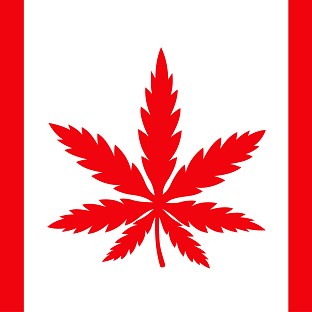On this day in 1918, Canadian socialist and labor activist Albert "Ginger" Goodwin was murdered by police while avoiding his draft into World War I by hiding out in the hills of Cumberland, British Columbia.
Born in Yorkshire, England on May 10th, 1887, Goodwin immigrated to Canada in 1909, at the age of 19, working as a coal miner in Nova Scotia.
In Canada, he organized with the Socialist Party of Canada and became a notable labor leader during the 1912–1914 Coal Miner's Strike against Canadian Collieries. Following the strike, he was blacklisted and was forced to move away from Cumberland to find work.
In 1916, he joined the Mining and Smelter workers Union and was elected as Secretary for the Trail chapter. Following his involvement with trade unions, Goodwin entered politics running as a candidate for the Socialist Party of Canada in the 1916 British Columbian election, although he did not win.
As World War I broke out, Goodwin became an outspoken advocate against the draft, initially refusing to sign up. When conscription became law in 1917, Goodwin was classified as fit for military service even though earlier health concerns had previously rendered him temporarily unfit. By then he had enemies not only in management and the government but also in the union of which he had been president. After twice vainly appealing his reclassification, he and several other draft evaders hid in the bush near Cumberland, where they were provided with supplies by people from the town. Police Constable Dan Campbell tracked Goodwin down and killed him. Campbell was charged with manslaughter but was exonerated before a grand jury, meeting in camera.
Goodwin's friends, both then and in the years since, have pointed out many discrepancies in the official record. On the day of his funeral, August 2, the Trades and Labor and Metal Trades Council of Vancouver called all members out for 24 hours to protest "the shooting of Brother A. Goodwin." The overwhelming response gave BC its first general strike.
"War is simply part of the process of Capitalism. Big financial interests are playing the game. They'll reap the victory, no matter how the war ends."
- Albert Goodwin
Megathreads and spaces to hang out:
- ❤️ Come listen to music with your fellow Hexbears in Cy.tube
- 💖 Come talk in the New weekly queer thread
- 🧡 Monthly Neurodiverse Megathread
- 💛 Read about a current topic in the news
- ⭐️ May Movie Schedule ⭐️
reminders:
- 💚 You nerds can join specific comms to see posts about all sorts of topics
- 💙 Hexbear’s algorithm prioritizes struggle sessions over upbears
- 💜 Sorting by new you nerd
- 🌈 If you ever want to make your own megathread, you can go here nerd
Links To Resources (Aid and Theory):
Aid:
- 💙Comprehensive list of resources for those in need of an abortion -- reddit link
- 💙Resources for Palestine
Theory:


math is weird lol. on the one hand, you're right that it's culturally constrained -- look at cultural resistance to negative or imaginary numbers. but on the other... circles are a very natural object to think about. they occur naturally and have nice properties. and it's kind of hard to spend any time thinking about circles without noticing that the ratio of a circle's diameter and it's circumference is constant for any circle. this is one of those discoveries that's been made again and again in the historical record -- if you find a math text from some ancient culture there's a decent chance it includes a proof of this very basic fact. the Mayans had no communication with the Greeks but they surely knew the value of pi.
can any sapient species, wherever and whenever in the universe it might be, avoid consideration of the material world, avoid discovering physics? any given system of measurement is mired in culture but can the act of measurement itself be considered cultural?
I don't for a second doubt that numbers as we understand them are deeply cultural and human. but you don't need numbers to independently arrive at most of mathematics - even as our reliance on them limits and constrains which portions of mathematics we invest our time and energy discovering.
idk, your position is valid, even if it takes a fairly limiting view. there are strong arguments that math is universalizable in a way very few other human inventions are. mathematics is the study of patterns and so long as they exist in the same reality as us, it's difficult to imagine that any sapient being would fail to spot some of the basic patterns that lead very naturally to the discovery of the rest of mathematics.
:comfy-cool: